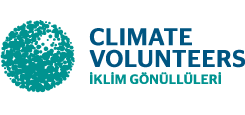VOLUNTARY CARBON MARKETS
Voluntary carbon markets are founded for individuals, companies, NGO’s to reduce and offset their greenhouse emissions as a result of their activities on a voluntary basis. The processes in these markets are very similar to the ones within the Kyoto Protocol’s flexibility mechanisms. The main differences between the voluntary carbon market and Kyoto Protocol’s compliance processes are that the emission reductions are traded outside the scope of national obligations, independent from the policies and targets set by governments, on a voluntary basis. There are no restrictions for participation.
Today voluntary carbon trading is valid in countries and industries outside the scope of Kyoto Protocol.
This process is different from legal sanctions and developed for;
- people willing to reduce the impacts of climate change (environmental awareness),
- developing innovative approaches to provide finance for public interest;
- strengthening relations with stakeholders,
- being prepared for national or regional regulations and strategic plans
- profiting from reselling the carbon credits,
- combining renewable energy and energy efficiency programmes.
Standards
Main standards used in Voluntary Carbon Trading;
Gold Standard: It is an international standard for certification of offsetting projects and carbon credits. Social benefits of the projects are also taken into account as well as environmental benefits. It is a non- profit organization approved by more than 60 NGO’s working for environment and development. The main purposes are to increase the investments to additional sustainable energy projects, ensure public support and increase the contribution to sustainable development. Renewable energy, energy efficiency and sustainable development projects are accepted.
VCS: It is an international standard applied by International Emissions Trading Association (IETA) and World Bank (WB). The standard focuses on measures to decrease the greenhouse gas emissions and does not require projects to provide any additional environmental or social benefits. VCS is highly supported by carbon offsetting industry (project developers, major carbon credit buyers, validators and project consultants).
VER+: Developed by TÜV Süd, used to certify offsetting projects and carbon credits.
ISO 14064: An internationally accepted standard for certifying offsetting projects and carbon credits developed by International Standards Institution.
There are additional standards developed and used by companies nationally or regionally in South America, North America, England, and Australia.






